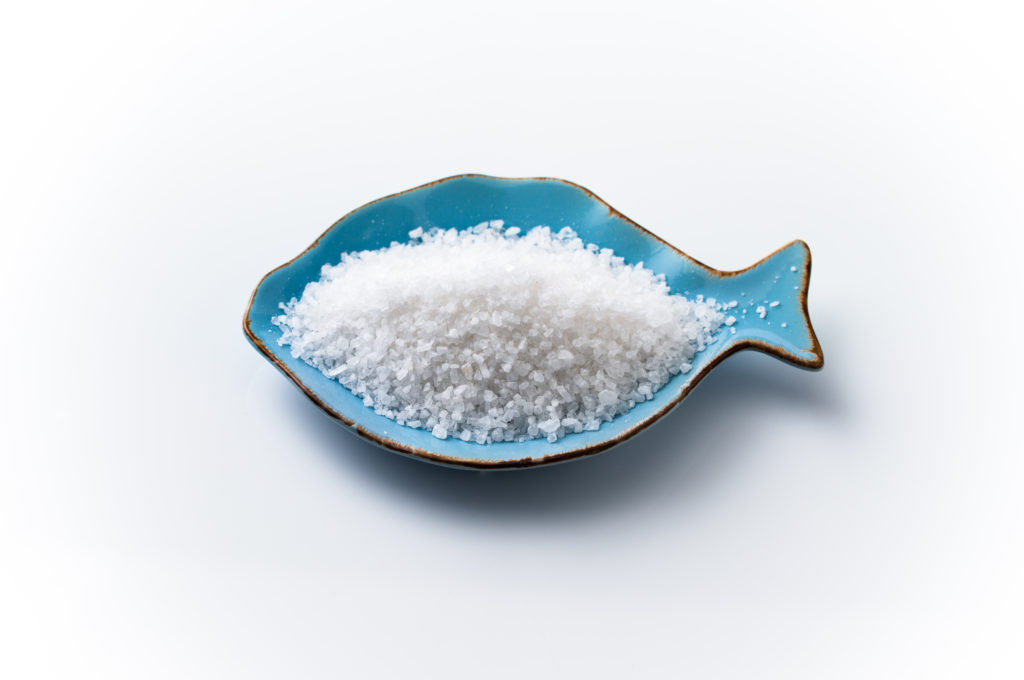
Ask the RD
Question: Sea salt is being promoted as if it were much better for us than our usual salt (table salt). Is this a marketing scam, or is there really something to it? Isn’t salt salt (sodium chloride), whether it comes from the sea or from the earth?
Answer: Technically, all salt is sea salt. Some salt is actively harvested today from salt-water bodies, while other salt is mined from mineral deposits that were formed when a salt-water body evaporated millennia ago.
Nutritionally, sea salt is 99% identical to table salt. According to the Salt Institute (www.saltinstitute.org), the U.S. Food and Drug Administration “requires food grade salt packaging to indicate all additives. Food grade salt in the U.S. may contain up to 2% of suitable food-grade anti-caking, free-flowing or conditioning agents. Although the total amount of additives that can be added to salt is 2%, in reality, far less is generally used. (Most table salt labels typically indicate that they are more than 99% pure sodium chloride.)” Also, to prevent iodine deficiency diseases (such as thyroid goiter), more than half of the table salt sold in the U.S. is iodized.
The main differences between table salt and “sea salt” lie in taste and texture. Sea salts harvested from evaporated sea water may have distinct colors, textures and flavors (reflective of the minerality of the specific body of water from which they come). Marketers use this fact to claim that table salt is less healthy than sea salt because the latter contains more potassium and calcium, which reduce fluid retention and, in turn, lower blood pressure. But these minerals are found in such small quantities (less than 1% of total weight) that they become nutritionally insignificant. The size and texture of sea salt crystals also differ from those of table salt. Some chefs and home cooks feel that texture makes a difference in the control they have over seasoning and, therefore, in the taste of their food.
Another label you should watch for is “organic salt.” Salts are minerals, not agricultural products and, consequently, cannot be certified organic. You may pay more for organically labeled salts but will receive no value in exchange.